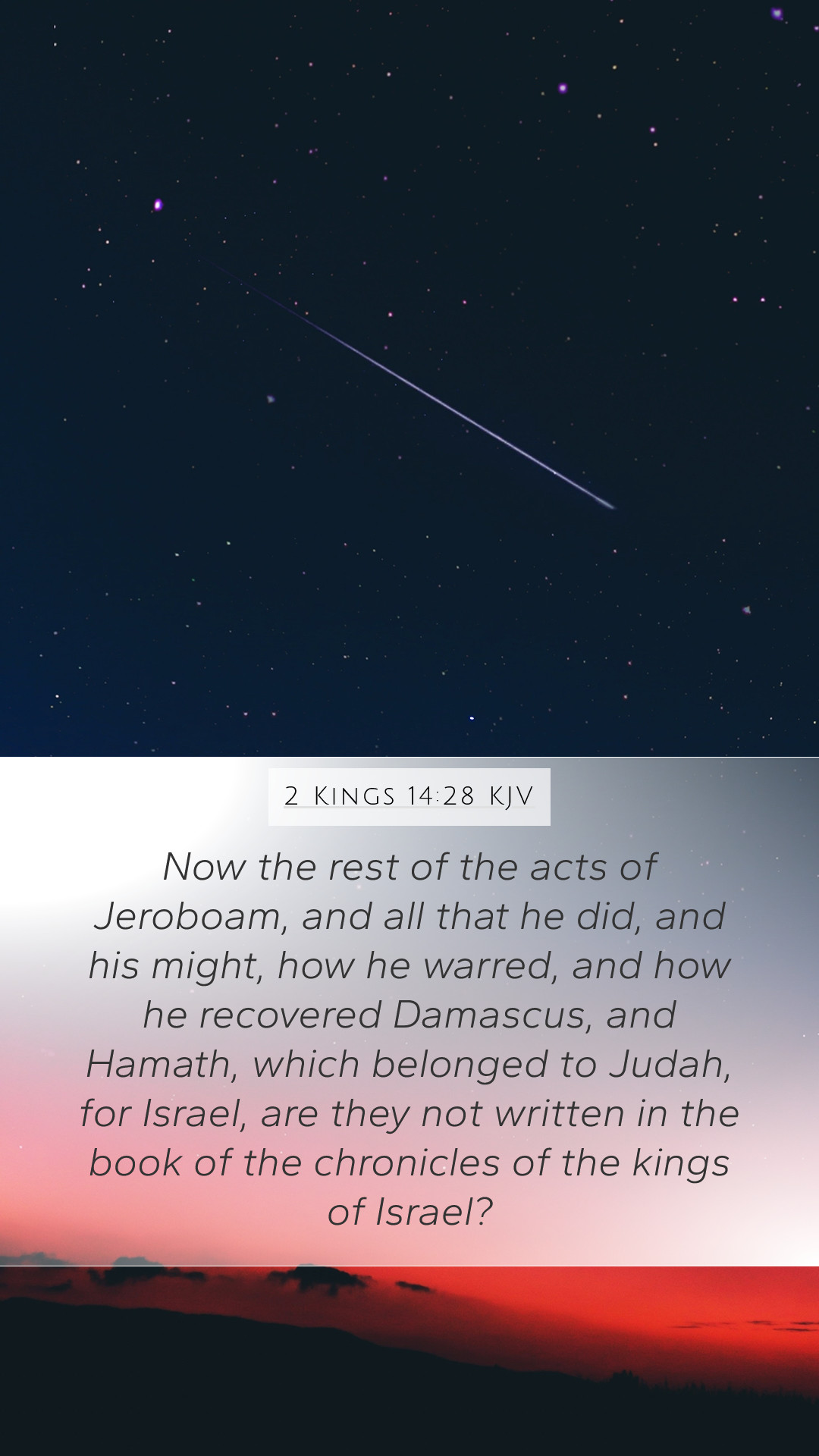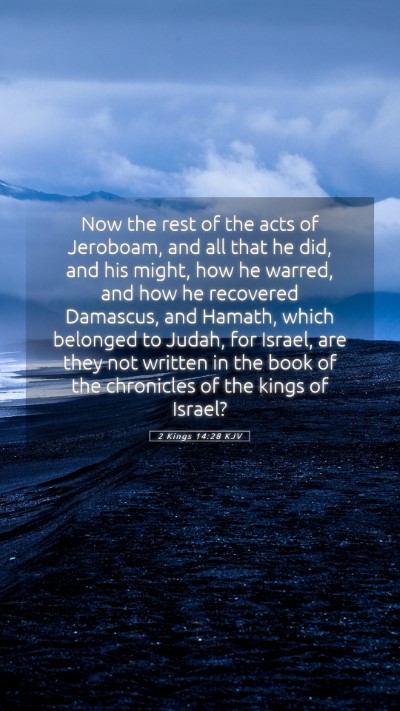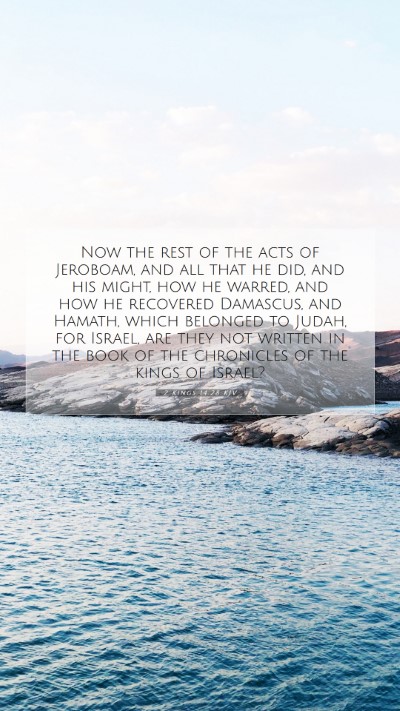Understanding 2 Kings 14:28: A Comprehensive Bible Verse Commentary
Verse: 2 Kings 14:28 – "Now the rest of the acts of Jeroboam, and all that he did, and his might, how he warred, and how he recovered Damascus, and Hamath, which belonged to Judah, are they not written in the book of the chronicles of the kings of Israel?"
Overview of 2 Kings 14:28
This verse concludes the account of Jeroboam II’s reign in Israel. It states that his deeds, including his military successes and recoveries, are recorded in the historical annals or chronicles. It emphasizes the significance of Jeroboam's actions in the broader scope of Israel’s history.
Biblical Context and Historical Background
Jeroboam II was a king of Israel who reigned during a time of prosperity and territorial expansion. The historical context reveals that his actions were crucial for the nation of Israel after periods of decline and oppression.
- Political Climate: Israel faced threats from various nations. Jeroboam’s military achievements reinstated some of Israel's lost territories.
- Spiritual Context: Despite the successes, the spiritual state of Israel was poor, with ongoing idol worship that set the stage for future judgments.
Commentary Insights
From the commentaries by Matthew Henry, Albert Barnes, and Adam Clarke, we derive several key interpretations:
- Historical Record: The phrase "book of the chronicles of the kings of Israel" suggests that the authors of Kings were a reliable source of Israel's history, emphasizing the importance of maintaining historical records for future generations.
- Royal Achievements: The mention of Jeroboam's might underlines his capabilities as a military leader and a king. It reflects how power dynamics in the region were continually shifting.
- Significance of Recovery: The recovery of Damascus and Hamath underscores not just military victory but also the restoration of territorial integrity, which was essential for the nation’s survival.
Theological Reflections
This verse invites readers to reflect on the nature of leadership, the consequences of national policies, and the cyclical nature of Biblical history.
- God’s Sovereignty: Even in Jeroboam's successes, the overarching theme of God’s sovereignty and His ultimate control over nations and leaders is prominent.
- Judgment and Mercy: While Jeroboam II experienced success, his reign foreshadows eventual judgment due to the continued idolatry practiced in Israel.
- Lessons for Today: The importance of understanding heritage, past decisions, and their long-term effects can serve as a guide for contemporary leaders and nations.
Cross References
For a deeper understanding and further reflection, consider the following related verses:
- 2 Kings 14:23-27 – Describes the reign and deeds of Jeroboam II in more detail.
- 2 Chronicles 26 – Highlights the success of Uzziah and the importance of a king's relationship with God.
- Amos 6:1-7 – A prophetic look at the impending judgment on those who are complacent during times of prosperity.
Conclusion and Application
2 Kings 14:28 teaches us the importance of examining past leadership and recognizing patterns in history that offer valuable lessons for the present and future. As we engage in Bible study, it is crucial to apply the insights gleaned from Scripture to our lives, recognizing the intricacies of divine sovereignty, human action, and societal consequences.
This verse resonates with anyone seeking a better understanding of Biblical interpretations and meanings, especially when pondered within the broader historical narrative of Israel. We encourage individuals and Bible study groups to explore such verses for deeper insight and context.


